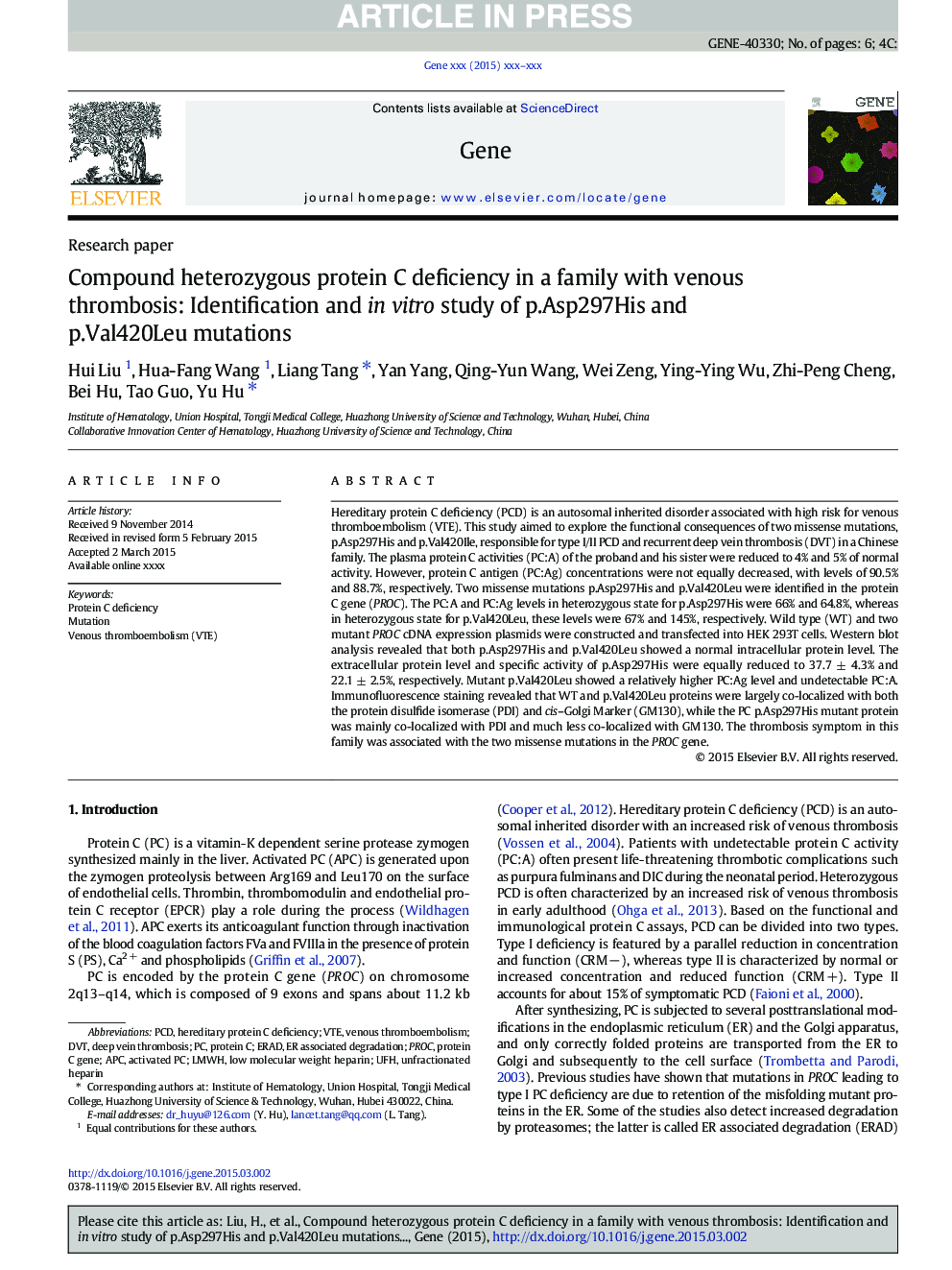| Article ID | Journal | Published Year | Pages | File Type |
|---|---|---|---|---|
| 5905434 | Gene | 2015 | 6 Pages |
Abstract
Hereditary protein C deficiency (PCD) is an autosomal inherited disorder associated with high risk for venous thromboembolism (VTE). This study aimed to explore the functional consequences of two missense mutations, p.Asp297His and p.Val420Ile, responsible for type I/II PCD and recurrent deep vein thrombosis (DVT) in a Chinese family. The plasma protein C activities (PC:A) of the proband and his sister were reduced to 4% and 5% of normal activity. However, protein C antigen (PC:Ag) concentrations were not equally decreased, with levels of 90.5% and 88.7%, respectively. Two missense mutations p.Asp297His and p.Val420Leu were identified in the protein C gene (PROC). The PC:A and PC:Ag levels in heterozygous state for p.Asp297His were 66% and 64.8%, whereas in heterozygous state for p.Val420Leu, these levels were 67% and 145%, respectively. Wild type (WT) and two mutant PROC cDNA expression plasmids were constructed and transfected into HEK 293T cells. Western blot analysis revealed that both p.Asp297His and p.Val420Leu showed a normal intracellular protein level. The extracellular protein level and specific activity of p.Asp297His were equally reduced to 37.7 ± 4.3% and 22.1 ± 2.5%, respectively. Mutant p.Val420Leu showed a relatively higher PC:Ag level and undetectable PC:A. Immunofluorescence staining revealed that WT and p.Val420Leu proteins were largely co-localized with both the protein disulfide isomerase (PDI) and cis-Golgi Marker (GM130), while the PC p.Asp297His mutant protein was mainly co-localized with PDI and much less co-localized with GM130. The thrombosis symptom in this family was associated with the two missense mutations in the PROC gene.
Keywords
Related Topics
Life Sciences
Biochemistry, Genetics and Molecular Biology
Genetics
Authors
Hui Liu, Hua-Fang Wang, Liang Tang, Yan Yang, Qing-Yun Wang, Wei Zeng, Ying-Ying Wu, Zhi-Peng Cheng, Bei Hu, Tao Guo, Yu Hu,
